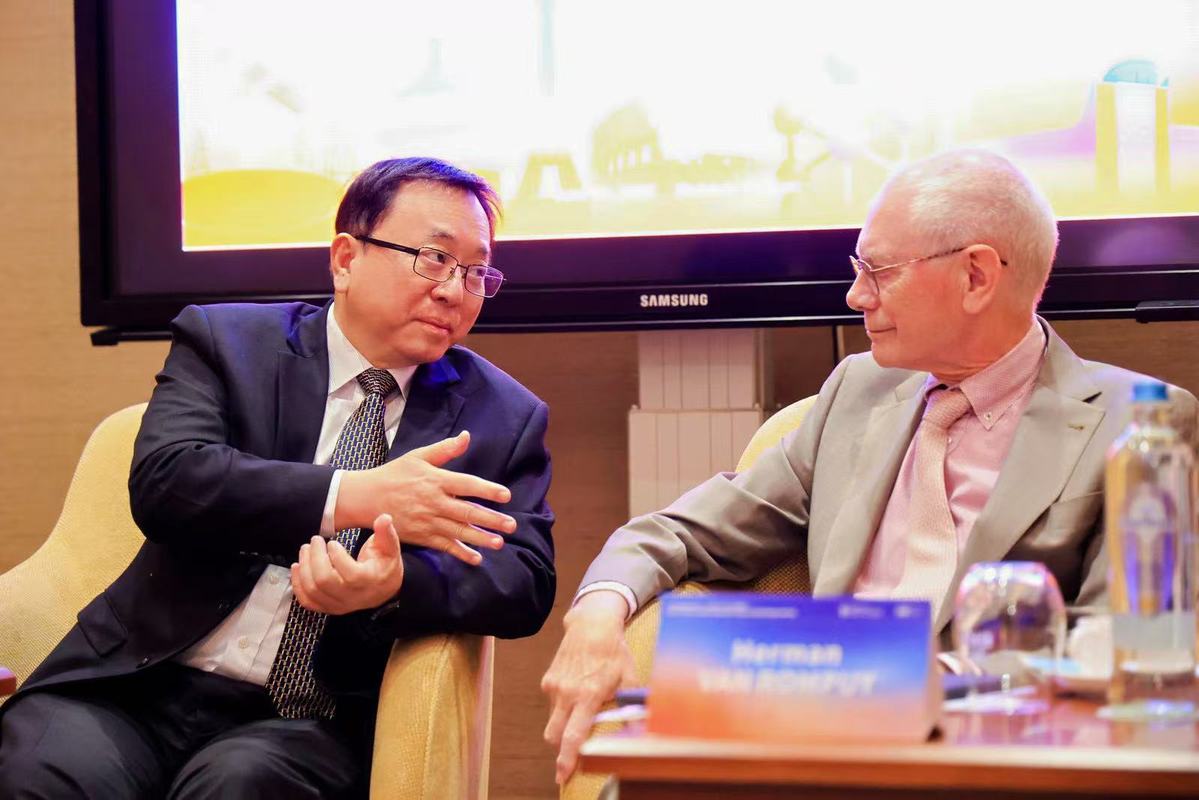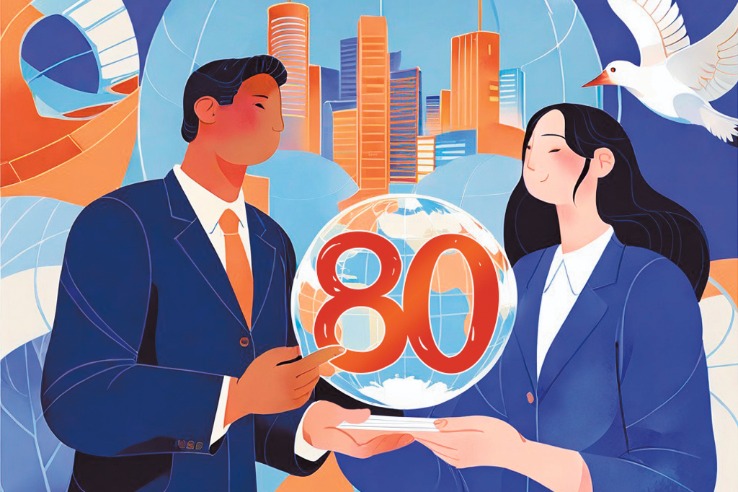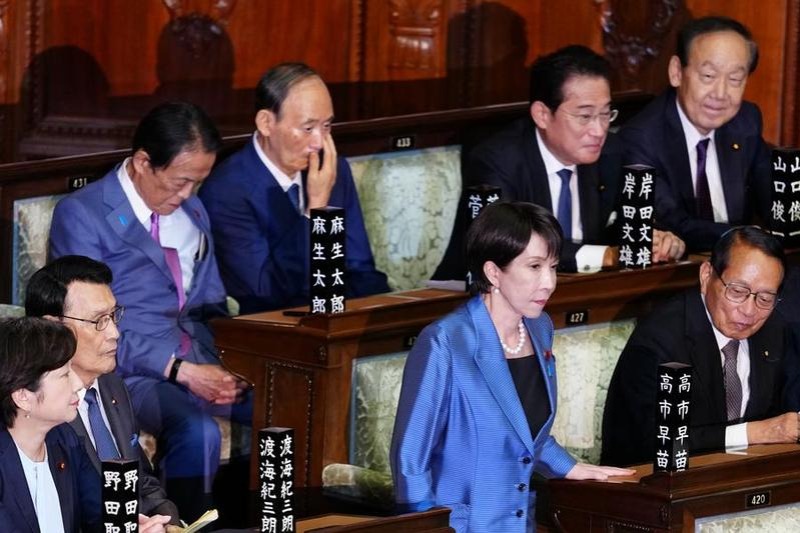Forum sees potential for EU and China in education cooperation


As China and Europe celebrate their 50th anniversary of forging diplomatic relations, there is much potential for mutual cooperation in the cultural exchange and education, said senior diplomats and senior educators at the Sino-European Higher Education Forum on Technologies & Arts, jointly held by the Hong Kong University of Science and Technology (Guangzhou) and the Free University of Brussels (VUB) in Brussels on Thursday.
Zhu Jing, Minister of the Mission of China to the European Union, said in his speech that the history of China-Europe exchange and cooperation is long and rich. "We have previously organized the China-EU cultural and arts festival and jointly carried out a variety of vibrant cultural exchange and artistic performance activities. As an important part of people-to-people exchanges, China-Europe cultural exchange and cooperation have played a positive role in enhancing mutual understanding between the Chinese and European peoples and in promoting the joint progress of the two great civilizations."
Lionel Ni, President of HKUST(GZ), reflected on the past 50 years of China-EU relations, listed the extraordinary achievements the two sides have made, and pointed out that these achievements had arisen from our shared spirit of dialogue and collaboration. These efforts have stimulated rapid progress on both sides, resulting in remarkable transformations within our societies, he said.
"Spearheaded by visionary leaders such as Robert Schuman, Europe has made substantial strides across various domains. In parallel, China's opening up has gone hand in hand with this integration over the last 50 years. Such parallel development is not solely a narrative of economic progress; it also reflects the embrace of a new mindset."
Rector of VUB Jan Danckaert delivered a welcome speech, saying that "Universities are repositories of knowledge and culture" and that "We must balance the excitement of digital experimentation with a deep respect for cultural integrity."
"As European and Chinese institutions, we are uniquely positioned to lead this dialogue. Our histories, philosophies, and innovations each bring a vital perspective to the conversation. We have an extraordinary opportunity and responsibility to shape how technology serves artistic integrity, how innovation respects cultural diversity, and how education remains a space for both critical thinking and freedom of creativity."
Herman Van Rompuy, former prime minister of Belgium and later the first permanent president of the European Council, shared his general observation to the summit, namely "globalization is not limited to the economy."
"Although the latter has been slowing down for a decade or so, exchanges are increasing in all other areas, particularly in sport, culture, music, film, entertainment, tourism, education and training, and others," he said, "students within and outside Europe are opting for internships and short or long study periods at foreign universities or colleges. This is an incredible opportunity for young people."
Ni also pointed out that what excited him most is that the current day cultural exchanges are not one-way. Since 2024, HKUST(GZ) has hosted management teams from over 20 European universities and welcomed students from more than 20 European nations to our campus, both as regular students and summer school participants.
"Over the past decades, China has evolved from a primarily agrarian society to a manufacturing powerhouse, and now to a nation dedicated to innovation. Focusing on people at the center, this country has lifted hundreds of millions out of poverty, reshaping lives and communities in recent decades. Many of our professors, myself included, hail from humble beginnings and now serve as leaders in academia, contributing significantly to these crucial dialogues. This transformation stands as a testament to the transformative power of education."
Technology is the key sector that the educators focus on, as Danckaert said: "Technology is not only reshaping how we live, it is transforming how we create, how we preserve culture, and how we tell stories across borders. It challenges our understanding of authorship, ethics, aesthetics, and even consciousness itself. Yet within that disruption lies great potential: to empower artists, to reimagine education, and to foster new expressions of identity, culture, and meaning."
On that topic, Ni noticed that earlier this year China announced a national strategy aimed at building a "strong education nation" by 2035, establishing a high-quality education system that ranks among the best globally, which he believes is enhancing its scientific competitiveness and innovative capacity, with a firm ambition to elevate the quality of education".
"This strategy encompasses the establishment of new research universities to bolster the country's competitiveness, and we take pride in exemplifying the embrace of the AI and green era," Ni said.


































